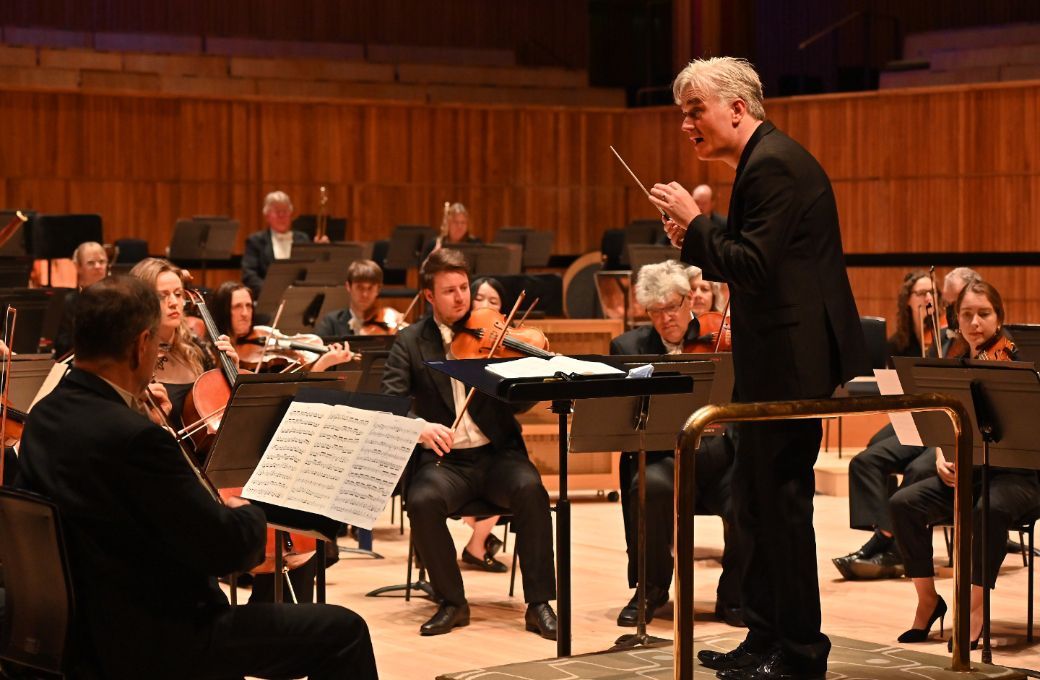Saffron Hall remains a vital cornerstone of classical music in the East of England, offering orchestral, chamber, choral and operatic performances – this autumn being no exception. With visits from the London Philharmonic Orchestra and English Touring Opera major highlights, the rich chamber fare shouldn’t be dismissed either, making the hall well worth the journey from nearby Cambridge and Colchester.

The London Philharmonic Orchestra makes an appearance early in the season, on 29th September, with Edward Gardner leading a richly romantic programme of Wagner and Tchaikovsky’s Fourth Symphony, with Benjamin Grosvenor joining for Grieg's ever-popular Piano Concerto.
The Philharmonic are back with more Tchaikovsky later in the season, at the end of November, performing excerpts from the most famous ballet of them all, Swan Lake, with Zlatomir Fung joining for Tchaikovsky’s cod-Baroque Variations on a Rococo Theme for cello and orchestra. Weber’s overture to Oberon completes the programme, maintaining a distinctly theatrical vibe for this concert.
Indeed, everything theatrical might be the watchword this autumn, with the appearance of English Touring Opera for two nights October 18th–19th. Blond Eckbert by Judith Weir, is a beguiling and haunting setting of the story of the same name by German Romantic Ludwig Tieck. The story is the origin-point of Waldeinsamkeit, the feeling of being alone in the woods, that most German of feelings, and Weir adapts Tieck’s story of loneliness and murder as told from the point of view of a forest bird. (Blond Eckbert is paired on the same evening with Do not take my story for a fairytale, a staging of songs written by Tieck’s contemporaries – including Beethoven, Haydn and Marianna Martines.)
Weir’s Waldeinsamkeit is contrasted with the deep Russianness of Rimsky-Korsakov’s Snow Maiden (Snegurochka), likewise derived from folk stories of the forest, but culturally quite distinct from German Romanticism. Rimsky-Korsakov’s music is sparkling and magical, and the libretto is based on the play of the same name by famed Russian playwright Alexander Ostrovsky, which originally had incidental music written for it by Tchaikovsky. (ETO's production, directed by Olivia Fuchs with sets by Eleanor Bull, will be sung in English.)
It’s not all Romanticism though. Baroque music lovers are well served this autumn at Saffron Hall with the appearance of several of the country’s finest Baroque ensembles and consorts. The Tallis Scholars perform on 20th October, with a Magnum Mysterium-inspired programme including music by Victoría and Allegeri’s Miserere – with its famous, if aprocryphal, soprano high C. The Sixteen make an appearance soon after, with Monteverdi’s Vespers, the pinnacle of Cremona master’s sacred compositions.
Baroque fans should stick around in November for the appearance of the Orchestra of the Age of Enlightenment, one of the UK’s premier period-instrument ensembles, for a performance of JS Bach’s inimitable Brandenburg Concertos. Written in his early years as Kapellmeister at Köthen, Bach later sent all six to the Margrave of Brandenburg as perhaps the most spectacular job application in world history (Bach didn’t get the job).
The Academy of Ancient Music also performs at Saffron Hall this season, together with vocal consort Tenebrae, in Handel’s Messiah, a longstanding Christmas tradition in the country that became Handel’s adoptive home. Shortly afterward, the OAE returns in January with soprano Julia Bullock to perform more Handel: namely Solomon, and Music for the Royal Fireworks, music that more than any other epitomises the grandness and authority of Georgian-era Great Britain.
There are many chamber-scale performances at Saffron Hall this season worth catching. Japanese violinist Coco Tomita, BBC Young Musician 2020 in the Strings category, makes an appearance early in the season on 13th October, with a programme including Toru Takemitsu’s From Far beyond Chrysanthemums and November Fog, a work perfectly encapsulating Takemitsu’s distinctive approach to post-impressionism. Tomita adroitly pairs it with works from Prokofiev and Debussy, joined throughout by pianist Simon Callaghan.
Another young talent (though not quite as young as Tomita), saxophonist Jess Gillam appears with her ensemble on 3rd November for an eclectic programme, including impressionistic music from Debussy and Nadia Boulanger, squared off against robust offerings from CPE Bach, Michael Nyman and saxophonist John Harle. Sheku and Isata Kanneh-Mason also appear in early November, for cello-and-piano works from the elder Bach, Britten, Gubaidulina and Shostakovich (the ghost of Rostropovich ever-present).
At the end of November, Pavel Kolesnikov and Samson Tsoy perform a four-hand piano recital that similarly buffets from fireworks to gentleness – launching into The Rite of Spring before departing for music from Ukrainian composer Leonid Desyatnikov and Schubert’s heartaching Fantasia. Soon after, Sō Percussion perform with US composer Caroline Shaw, in their co-created songbook Let the Soil Play Its Simple Part. Shaw’s continuing interest in all things earthy and folksong-like is on full display – with Sō Percussion performing on a menagerie of percussive objects, including flower pots, steel pans and musical toys.
The turn of the year sees two concerts in a celebratory mood. On 8th December Manchester Camerata perform with the AMC Gospel Choir, one of the best gospel choirs in the country, in a concert sure to be of maximum good-feeling. Then on 5th January the BBC Concert Orchestra arrives with trumpet soloist Matilda Lloyd for a New Year’s concert featuring the bright clear water of Haydn’s Trumpet Concerto and the poise of Mozart’s Symphony no. 25, alongside later Viennese romps from Johann Strauss II.
See all upcoming events at Saffron Hall.
This article was sponsored by Saffron Hall Trust.


